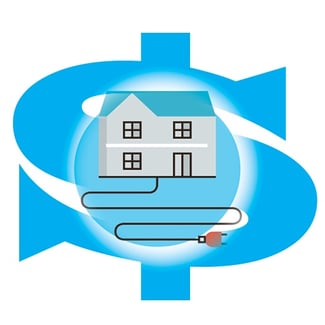 Most homeowners have no problem identifying the single biggest home expense they have: It’s their mortgage. According to The Residential Energy Services Network (RESNET®) the second highest cost of home ownership today is energy. That’s why people building homes in the Poconos (or anywhere else for that matter) are paying much more attention to building energy efficient homes.
Most homeowners have no problem identifying the single biggest home expense they have: It’s their mortgage. According to The Residential Energy Services Network (RESNET®) the second highest cost of home ownership today is energy. That’s why people building homes in the Poconos (or anywhere else for that matter) are paying much more attention to building energy efficient homes.
The thing is, there’s more to building an energy efficient home than simply adding a bit more insulation. To do it properly your builder needs to look at the house as a whole and make sure that all the various “parts” of the house are working together to maximize the efficient use of energy. For instance:
- The Exterior: Your builder needs to ensure that your home is properly sealed to prevent heating or cooling loss in areas such as your walls, your doors and windows, and around vents, pipes, and wiring. Your insulation should be installed with minimal gaps. And you should have energy efficient doors and windows.
- The HVAC System: Your heating, ventilation, and cooling system should be as highly efficient as possible. Having an under-sized system can actually cost you more because it will constantly be running to “keep up" but having an oversized system may cause “short cycling” leaving humidity and indoor air quality difficult to control. And that’s not the end of the story. But that’s not the end of the story. Having the proper sized air ducts (and having them insulated in exposed areas such as crawl spaces) increases efficiency.
- Energy Efficient Lights: Home lighting uses a lot of energy. But a 15-watt CFL light bulb uses approximately 75 percent less energy than a conventional 60-watt incandescent bulb while giving off the same light. A 12-watt LED bulb is even more efficient (and many prefer the quality of the light). On top of that, the incandescent bulb has a life of about 1,000 hours while the CFL will last about 10,000 hours and the LED will last about 25,000 hours.
- Energy Efficient ENERGY STAR Appliances: In addition to offering great performance and style, ENERGY STAR appliances are much more efficient. Consider the energy efficiency and cost savings of the following ENERGY STAR appliances:
• Refrigerators are 20 percent more efficient
• Dishwashers are 10 percent more energy efficient
• Washing machines use 50 per cent less water and 30% less energy.
• Ventilation fans in bathrooms, utility rooms, and kitchens use 70 percent less energy
The benefits of building a truly energy efficient home are fairly obvious: Reduced utility and maintenance costs, better comfort in your home, and increased home value/resale. As a RESNET energy smart builder, we’re trained (and committed) to building you the most energy-efficient home on the market!








